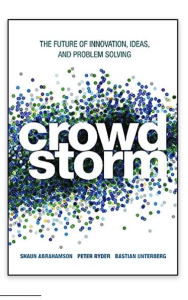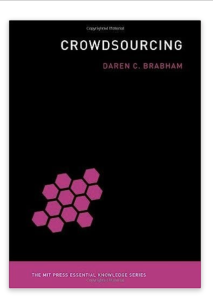
I am not sure of the source of this quote, “No One knows everything, everyone knows something and all knowledge resides in humanity.” It is perfect for incapsulating the principle of crowdsourcing. If you haven’t realized it crowdsourcing has proven to be a dynamic and powerful resource. And it has greatly influenced the development of new employment income models. And if you are a cutting-edge entrepreneurial thinker, you are already using it in your business – big or small. It is the evolution of social listening.
With crowdsourcing you can leverage blog comments, Facebook comments, and partnerships like Buzzfeed and WeChat, as channels for new product development research. Crowdsourcing is a powerful tool that can be used to solve trending customer service issues with the help of an engaged grassroots following and for addressing global social issues.
The implications for social good was further demonstrated being demonstrated during the Coronavirus Pandemic by a number of the awardees and initiatives of the prestigious organizations like Skoll Foundation such as the Amazon Conservation Team’s work with indigenous communities, the SELCO Foundation’s Coronavirus specific collection of resources, and WITNESS/Covid response hub supporting those using video to protect human rights during the Pandemic.
In the for-profit arena 10EQS-online collaboration, an early adopter of crowdsourcing, continues to use a type of crowdsourcing demonstrating business consulting on steroids. Unlike traditional consulting firms, according to co-founder, and former CEO, Sugath Warnakulasuryiya, the model removes the limits of traditional consulting firms. Traditional consulting companies are limited terms of the number of available on-staff experts and depth and breadth of staff knowledge to address a client’s particular project. 10EQS takes advantage of the Internet, digital networking and crowd sourcing to find, evaluate and select the best virtual team globally on a project basis. This is redefining employment income and providing knowledge workers an opportunity to “sell” their services selectively based on subject matter interest and highest compensation.

Back to social good applications– I recall reading a “New York Times” digital article covered the story of a mysterious deadly illness that had killed at least 20,000 in Nicaragua. The article talked of baffled medical experts. What stayed with me was the type and caliber of comments on the article’s blog post – more than 50 of them; doctors and nurses with obvious specific expertise, nonprofit professionals with first-hand experience on the ground in the country. Others offered relevant experience with illnesses having identical symptoms gained in other geographic areas. Still others related the situation to experiences from differing time periods.
Think of the potential for you in your business – to leverage such power via customer service or engaging audiences in product development dialog. Think of the benefits for positive social impact on a global level. Whether for profit or nonprofit this goes way beyond social listening. It is the power of social engagement resulting in positive results– development and implementation of realistic, beneficial and achievable outcomes.
Whether you are an individual reinventing your career or a for-profit or nonprofit decision influencer for additional related perspectives I recommend reading the books featured here; Crowdsourcing (the MIT Essential Knowledge series), Crowdstorm by Peter Ryder, Shaun Abrahamson, and Bastian Unterberg, and Daniel H. Pink’s book Drive: The Surprising Truth About What Motivates Us.
